
Radar | Oct 26,2025
Jul 20 , 2019
By BERHANE HAILEMARIAM ( FORTUNE STAFF WRITER )
The National Disaster Risk Management Commission is searching for transporters to ferry six million quintals of wheat from the Port of Djibouti to various drought-affected distribution centres around the country.
Nearly two-thirds of the wheat will be distributed to the approximately 8.5 million people affected by drought and displacement, while the remaining six million quintals of wheat will be held in reserve in eight different regional warehouses in Adama, Kombolcha, Shinile, Dire Dawa, Shashemene, Woreta, Wolayita and Meqelle. The Adama warehouse will receive one-third of the supply, and Dire Dawa will hold 203,500ql.
The Commission floated a tender at the beginning of this month to hire companies to transport the commodity under the management of and oversight of the recently formed National Transport Committee. The Committee is composed of members from the Ministry of Transport, Ethiopian Shipping & Logistics Services Enterprise, Public Procurement & Property Disposal Service and the Commission.
The committee will regulate the move and ensure that inconveniences on other imported goods transported from the port are avoided, according to Haydrus Hassan, director of logistics and supply at the Commission.
The operation is expected to be completed in October, and the Commission plans to ferry 80,000ql to 120,000ql of wheat a day.
“To transport this quantity," Haydrus said, "we have to deploy 200 to 300 trucks with a loading capacity of 400ql a day."
The country has a total of 217,351 dry cargo trucks and trailers, of which 168,658 are trucks with trailers with more 10ql of capacity, and 48,693 trucks have less than 10ql of loading capacity.
Currently, the Commission is transporting 200,000ql of wheat from Djibouti to the warehouses. The procurement and logistics of this batch of the consignment are made and facilitated by the World Food Programme, and 60,000ql of it has already arrived at warehouses.
The wheat will be stored in warehouses in Dire Dawa, Adama and Kombolcha before being distributed to the displaced and drought-affected areas.
As of January 2019, around three million people remain displaced and are likely to require continued humanitarian assistance regardless of their location, according to the April-June 2019 Ethiopian Immediate Humanitarian Funding Priorities Report of the United Nations Office for the Coordination of Humanitarian Affairs (UNOCHA).
Gole Dura, an expert with more than three decades in the logistics sector, has some worries at mobilising such a huge number of trucks daily and the impact it will have on the transportation of other import and export activities, recalling inconveniences caused to coffee exporters during a similar campaign transporting fertilisers and wheat.
Gole, who currently works as the deputy manager of Erkab Transit & Consultancy Service Plc, a company with more than 15 years of experience providing freight forwarding and customs clearing services, suggests the grain has to be transported proportionally.
He says bringing all the wheat at once could lead other imported cargo to languish at the port and lead importers to pay additional demurrage costs and container rental fees, which in the end would be paid by consumers.
"Container and demurrage fees paid to the Port of Djibouti could lead to inflation," Gole said.
PUBLISHED ON
Jul 20,2019 [ VOL
20 , NO
1003]

Radar | Oct 26,2025
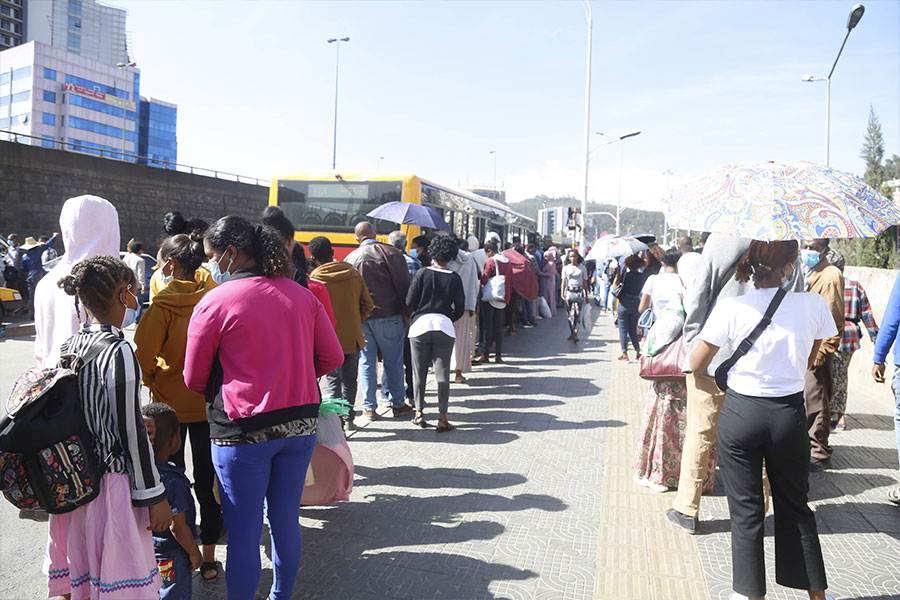
Agenda | Feb 05,2022
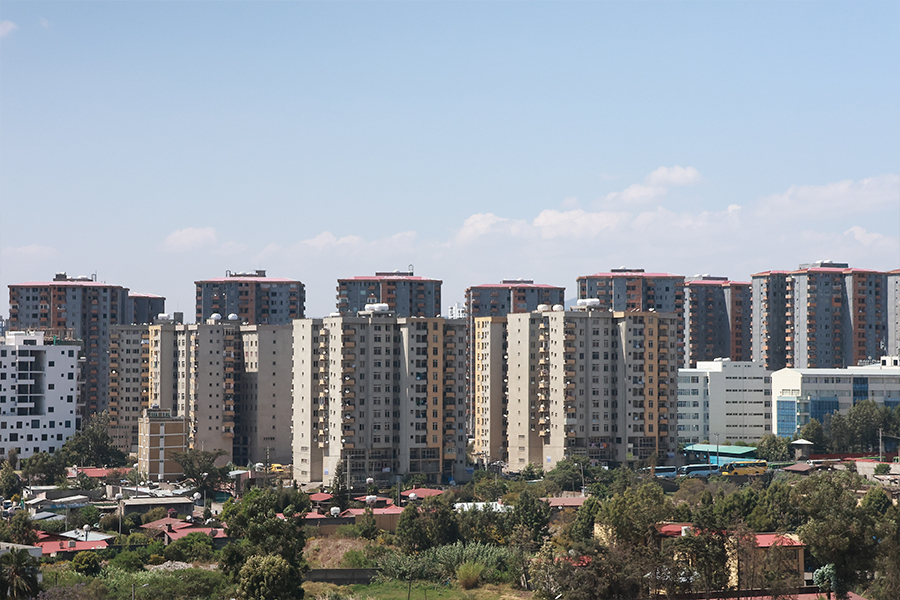
Agenda | Nov 11,2023
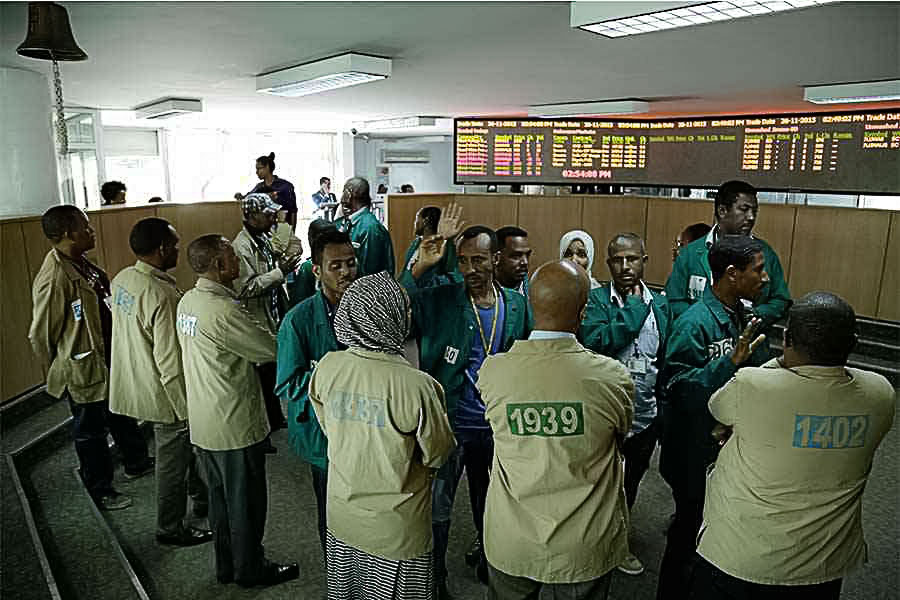
Fortune News | Oct 22,2022

Fortune News | Nov 30,2019

Radar | Nov 16,2024

Fortune News | Jun 18,2022

Radar | Oct 05,2019
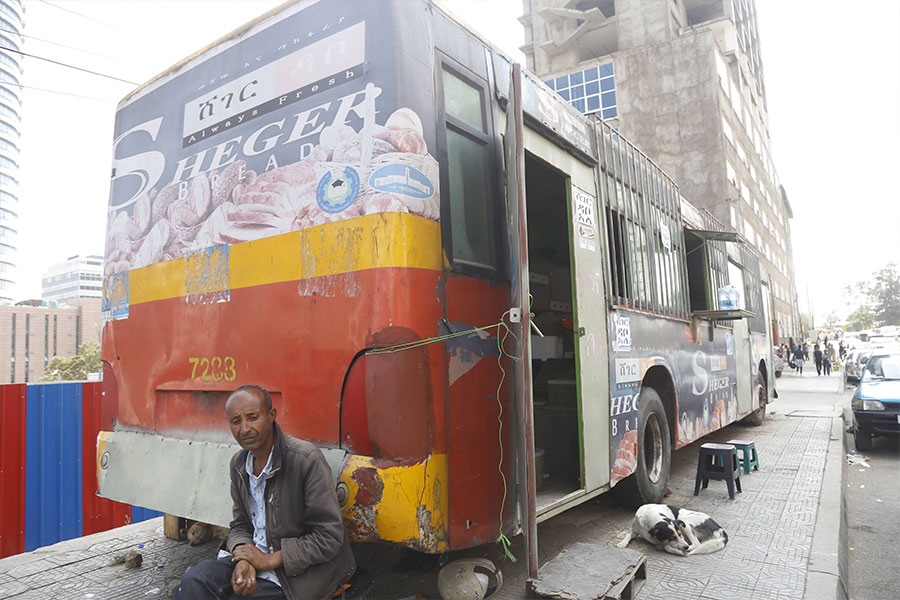
Agenda | Dec 19,2021
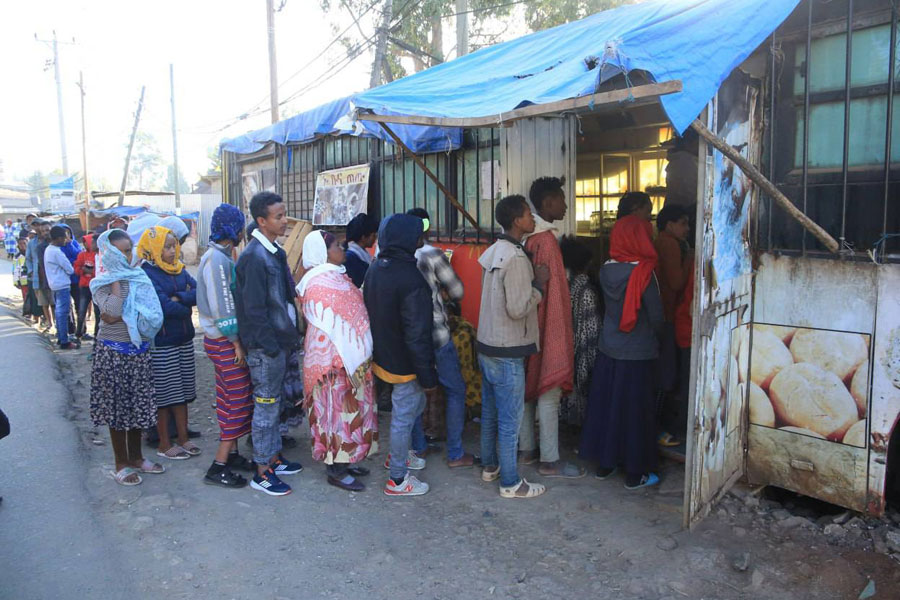
Agenda | Feb 18,2023

Dec 22 , 2024 . By TIZITA SHEWAFERAW
Charged with transforming colossal state-owned enterprises into modern and competitiv...

Aug 18 , 2024 . By AKSAH ITALO
Although predictable Yonas Zerihun's job in the ride-hailing service is not immune to...

Jul 28 , 2024 . By TIZITA SHEWAFERAW
Unhabitual, perhaps too many, Samuel Gebreyohannes, 38, used to occasionally enjoy a couple of beers at breakfast. However, he recently swit...

Jul 13 , 2024 . By AKSAH ITALO
Investors who rely on tractors, trucks, and field vehicles for commuting, transporting commodities, and f...

Nov 1 , 2025
The National Bank of Ethiopia (NBE) issued a statement two weeks ago that appeared to...

Oct 25 , 2025
The regulatory machinery is on overdrive. In only two years, no fewer than 35 new pro...

Oct 18 , 2025
The political establishment, notably the ruling party and its top brass, has become p...

Oct 11 , 2025
Ladislas Farago, a roving Associated Press (AP) correspondent, arrived in Ethiopia in...